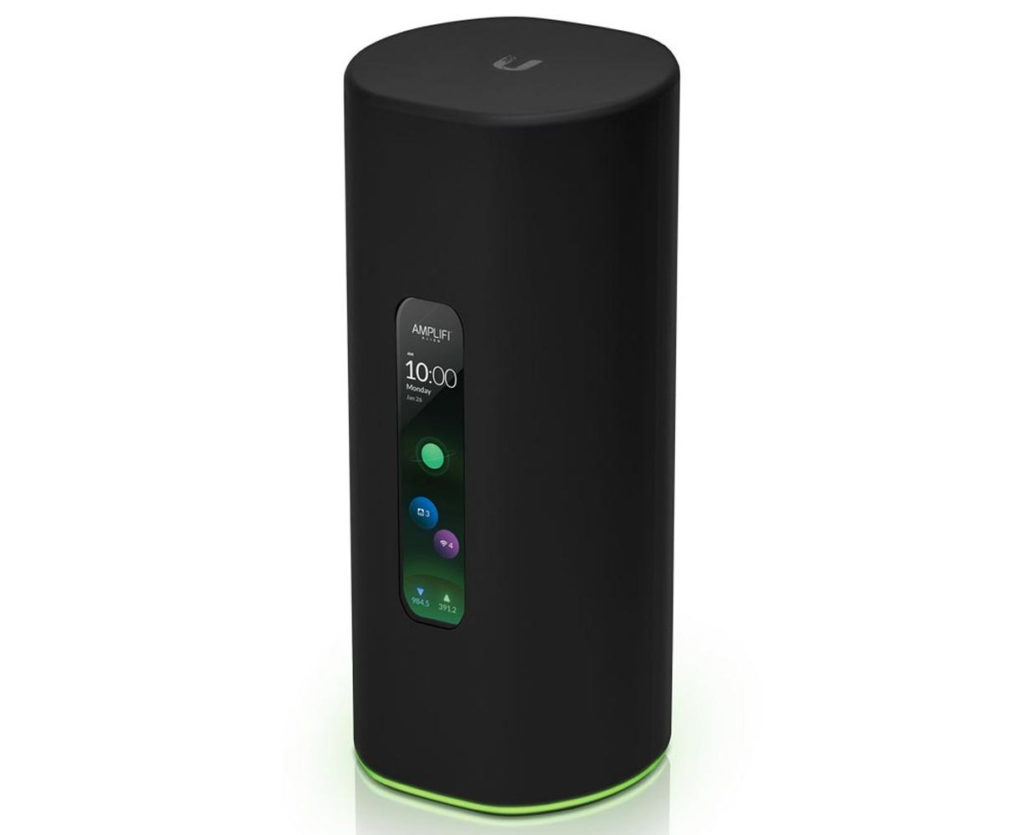For years, (at least 10) I’ve been using Apple TimeCapsules for my router and basic backup needs. The main TimeCapsule which has been in continuous operation for 5 – 6 years was finally starting to show its age.
Don’t get me wrong, it still works but it was starting to drop WiFi connections at odd moments and for no apparent reason. I started digging around and found that the maximum number of WiFi connections a TimeCapsule could handle was 40. What wasn’t completely clear was did the TimeCapsule have enough horsepower to handle 40 wireless and some unknown number of wired clients or was it 40 total?
I did a quick count of the number of devices talking to the TimeCapsule on average. Try 30 devices talking on WiFi normally. (The joys of a smart home!) If all the possible devices that wanted internet access Wired & Wireless were online we were talking 50 total.
Hmmm. A few quick experiments later and I found that low usage WiFi devices were being knocked off the net being replaced by higher demand devices. Things like Xbox, Apple TV, and DVD players would replace things like the thermostat, or the weather station display unit.
These low demand devices would generally come back after the high demand items got turned off, but sometimes they’d have to be reset to reconnect to the network.
I don’t know if it was processing, sheer number of clients, or just plain old tired, what was obvious was two things. 1) The number of clients was only going to increase, & 2) I really needed new router.
I looked at Eero’s, Orbi’s, and Netgear. The problem I had with each of these was that you had to have an account with Google, Amazon, or Netgear and I didn’t really like that idea. I wanted a router that did it’s job and wasn’t phoning home to tell wherever home was, about my porn habits, or anything else I was doing or shopping for. So an account being necessary to use a router I purchased, was out of the question.
Maybe I’m paranoid, maybe I’m not.
After some searching I found the Amplifi Alien.
I did some more research and found that you don’t have to have an account to use it. It’s a mesh router. Meaning it has the ability to seamlessly broadcast to other routers or to a satellite Alien (repeater).
The unit supports WiFi 6 so my phone and more recent devices are happy, it supports standard 2.4 and 5 GHz, with unification of everything under one SSID (Network Name). My Apple TimeCapsules always had a problem with that, and I had to maintain two different network names to provide for the 2.4 GHz only devices.
The router doesn’t have a dedicated backhaul wireless channel, but it does have the ability to use a hardline to handle the backhaul communications.
This is a pricey router, but no more than a 3 TB TimeCapsule was.

The unit is configured from an app on your phone.
I had it up and running in about 10 minutes. 5 Minutes was spent trying to figure out a way to put this machine out where it can be seen instead of hiding in my wiring closet. It’s beautiful.
Wow! This thing is FAST!
Suddenly, all my devices are connected and stable. Since Apple has gotten out of the Router Business I knew I was going to have to replace my router with something non-Apple eventually. I hadn’t planned on doing it right now.
That being said, I’m pleased as punch with this machine. I’m getting full fiber optic speeds out of my ISP. My WiFi coverage is much better than it was. I’ve got zero dead zones in the house or garage, and the signal extends well into the street as well as covering my entire yard.
SUPER! No more weird pauses in music or podcasts while I’m working in the yard.
I’ve also got up to 120 WiFi clients and because of the mesh technology I’ve got the ability to actually have more than 120 by adding another Alien at the other end of the house. The mesh tech, sends clients to whichever router is closer, so presumably with many of the client devices staying in one location I could have 1/2 on one router and 1/2 on the other.
Right now, I’ve only got the one router and it covers my needs very well. But it’s nice to have some expansion room, thinking longer term.
Devices are only going to get smarter. Speakers, lights, TVs, locks, alarm systems, garage door openers, and on & on. Even my HAM radio has the ability to use the internet over WiFi.
I was surprised to discover that there were so many machines in my home that were chatting away. I knew they were there, I’d obviously connected them to the network but I’d never really started counting them until recently.
In my immediate future, I suspect there is going to be a smart ceiling fan, a smart garage door opener, some video surveillance cameras, and maybe even a smart door lock.
I could actually see moving everything to WiFi. I’m not sure I will, but I like the concept of not having to run actual cable if/when I move to a new house.
Thus far… A week into owning this puppy, I’m giving it a big thumbs up. It seems to like the Synology RAID. Now to see how it reacts to multiple network drives…
